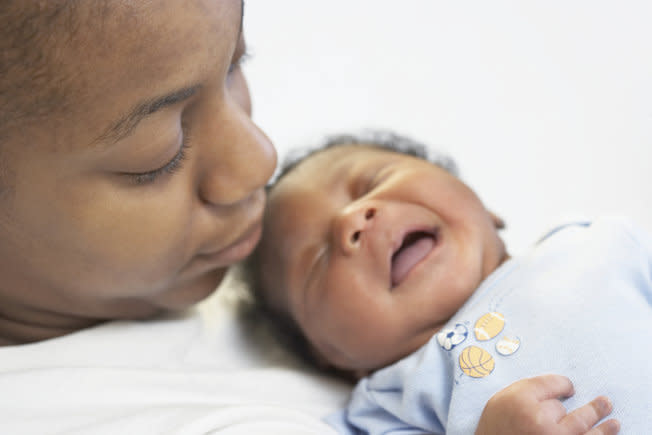Serious Birth Defect on Rise in U.S.

Gastroschisis is increasing among babies, especially those born to young black mothers, the U.S. Centers for Disease Control and Prevention report. (Photo: US News & World Report)
A serious birth defect that causes the intestines to hang out of a newborn’s body near the belly button area is on the rise among babies born to young black mothers in the U.S., and health officials have no idea why.
The Centers for Disease Control and Prevention sounded the alarm about the birth defect, called gastroschisis, in a report published Thursday, Jan. 22, that looked at data across 14 states.
Over the course of 18 years, the prevalence of gastroschisis more than doubled in the U.S., increasing among moms of every age and racial group. Among babies born to black mothers, it increased by more than 250 percent, particularly among teen mothers.
Related: 10 Concerns Parents Have About Their Kids’ Health
In all, 2,000 babies are born with the condition each year.
“Public health research is urgently needed to figure out the cause and why certain women are at higher risk of having a baby born with gastroschisis,“ Coleen Boyle, director of the CDC’s National Center on Birth Defects and Developmental Disabilities, said in a statement.
The defect occurs during embryo development when the abdomen forms incorrectly, leaving a hole for the intestines – and sometimes the stomach and liver – to extend outside of the body. Doctors can spot the condition among mothers who receive regular ultrasounds by the second trimester, and then know to be particularly careful during delivery. But the organs still can become irritated from exposure inside the uterus and can twist, swell and become infected.
Related: 10 Things No One Tells You About Breastfeeding
Surgery, in which doctors put the organs back into the abdomen and close its walls, is necessary a few weeks after birth. Recovery takes about six weeks.
Even after surgery, some gastroschisis patients have problems eating and digesting food, which can lead to acid reflux, malnutrition or stunted growth. In some cases, the birth defect can be life-threatening.
The CDC does not know why some babies develop gastroschisis – whether it is caused by genetic or environmental factors like what a pregnant woman eats or drinks or by the medicines she takes. The number of cases did not follow the same track as the number of live births for teen moms, which actually declined during the same period.
Read This Next: The Fertility Preservation Diet: How to Eat if You Want to Get Pregnant
Let’s keep in touch! Follow Yahoo Health on Facebook, Twitter, Instagram, and Pinterest.

